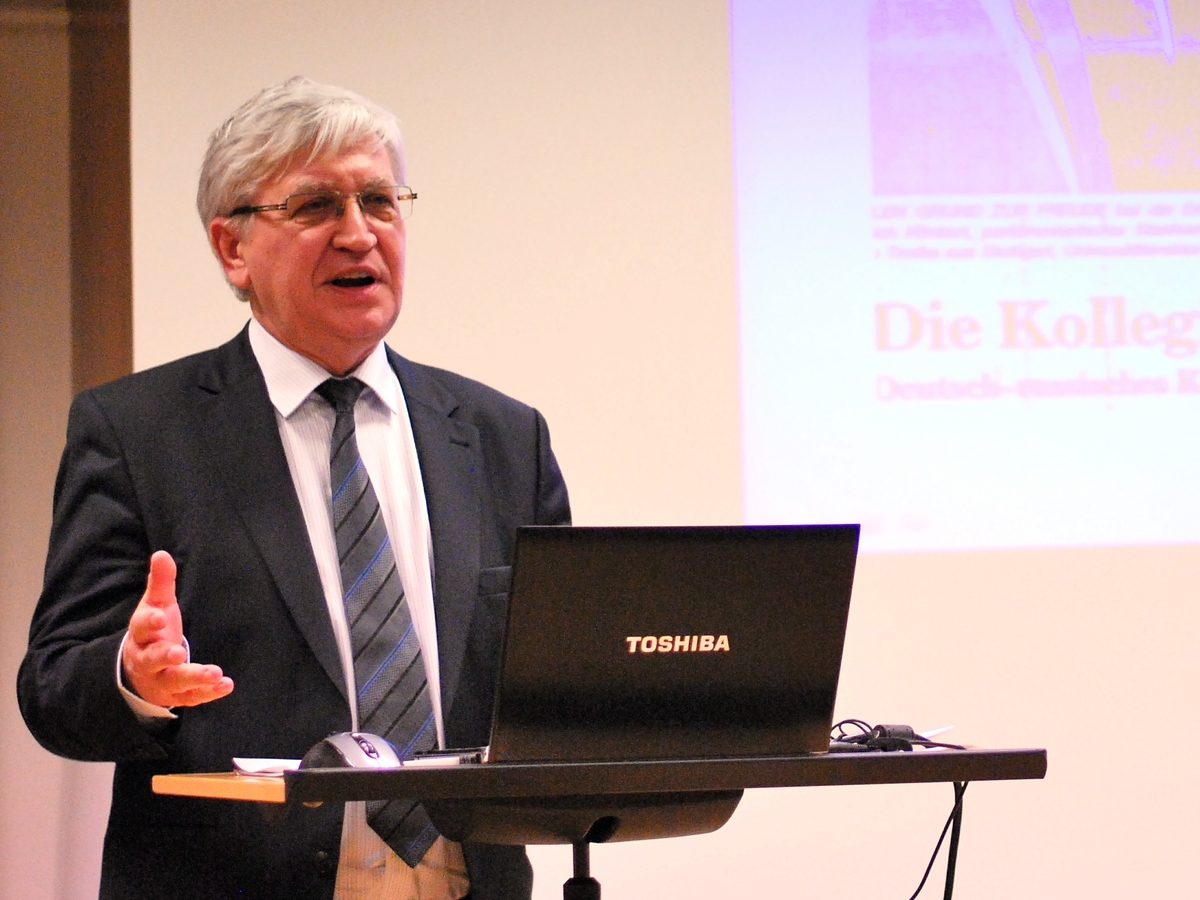Bridge builder between Moscow and Karlsruhe
"Science knows no bounds or nationalities," explained Vitaly Gorokhov at the ceremony at the Institute of Technology Assessment and Systems Analyses (ITAS), for which he worked from 2001 until his retirement. True to this belief, the technology philosopher who lives in Moscow and Weingarten committed himself more than almost anyone else to establishing academic relations between his home country Russia and Germany.
Gorokhov, who came to Karlsruhe in 1990 holding a scholarship of the Friedrich-Ebert-Stiftung, was – among other things – the founder and head of the "Zentrum für Ost- und Mitteleuropa" (Center for Eastern and Central Europe) and the German-Russian College at the University of Karlsruhe, which has to date produced more than 100 graduates from both countries. As close advisor to the Russian Ministry of the Environment and head of the German-Russian Environmental Monitoring Project (IRIS) he organized Gorbachev’s historic visit to Karlsruhe during the Environmental Forum in 1998.
Thus his long-standing academic companion, ITAS Professor Gotthard Bechmann, honored Gorokhov as a "brilliant negotiator and organizer between the West and the East". Gorokhov, who holds the Chair of Philosophy of Science and Technology at the State Academic University for the Humanities in Moscow and is a Fellow of the Russian Academy of Sciences, also received the honorary doctorate from the Faculty of Humanities and Social Sciences for his outstanding academic achievements. Professor Hans-Peter Schütt, Head of the Institute of Philosophy at KIT, thus acknowledged Gorokhov’s efforts in establishing the philosophy of technology and technology assessment in Russia as well as his profound examination of the work of Galileo Galilei and his significant publications on its influence on intellectual history and the history of technology. (21.01.2015)



